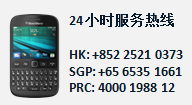Discharge of bagged rice in Ukrainian ports
Advice has been received from DIAS Marine Consultants based in Odessa, Ukraine that there are frequent incidents where vessels are required by the State Sanitary Authority (SSA) to stop discharging further cargo the moment alledged non-sound cargo is discovered. Upon vessel's arrival, the SSA will board and inspect the condition of the cargo. Even if mould is found on the bags only, the SSA will stop the discharge of all cargo from the holds where the mouldy bags are discovered. It is understood the SSA have a very tough stance and negotiation is difficult and cargo receivers have been known to reject the cargo on the basis of the SSA report.
This issue appears to relate to a number of vessels arriving from Chinese loadports where sometimes the cargo, packed in single woven polypropelene bags(not double bags), is stored in stacks in the open area covered only by tarpaulin and as a conseqeunce wettage and collection of moisture prior to loading or during the loading operation may have arisen. Another possibility for the moulding of the bags could have arisen during the long voyage from China to the Black Sea ports which would mean transiting several climatic zones resulting in formation of sweat. The improper stowage of the cargo in the holds would not allow proper ventilation and this could also contribute to the development of mould on the bags.
In the event your vessels will be calling any Ukraine ports to discharge bagged rice, we would suggest you advise the Master of the above situation and request him to take the following precautionary measures:
- ensure the cargo, prior to loading, is stored at a warehouse
- in the event the cargo is stored improperly, a Letter of Protest should be issued prior to loading
- monitoring the loading operation with careful inspection of the cargo loaded on board should be performed to prevent the possibility of any wet bags being loaded
- ensure proper stowage of the cargo in the holds to allow satisfactory cargo ventilation during the voyage
In the event damage to cargo is suspected to have occurred during the voyage, please inform your P&I Club so that the P&I Club's correspondent at the discharge port may appoint surveyors to attend the vessel and assist to minimise the potential claim.





